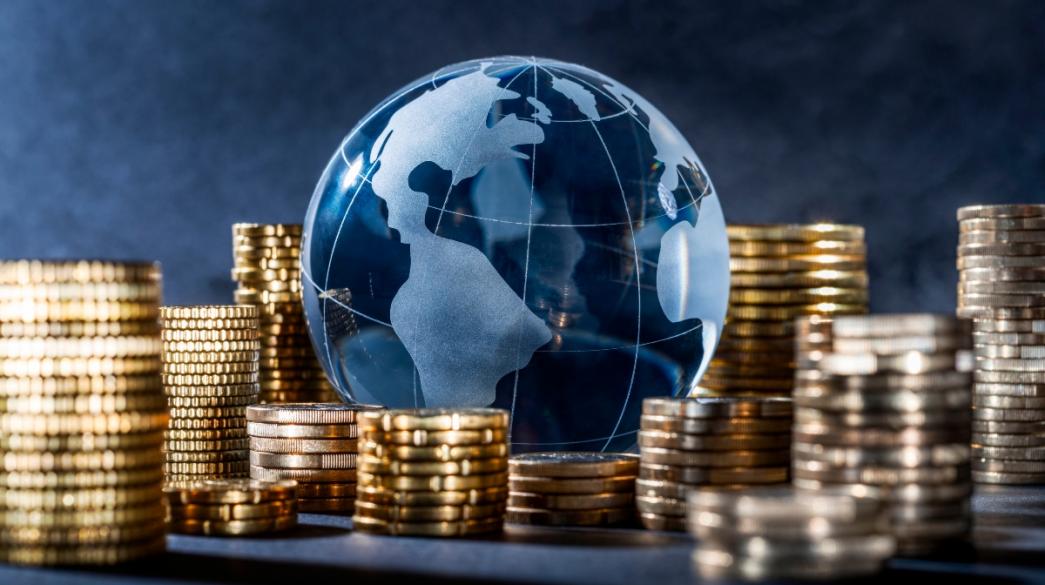While Globalization has generated considerable benefits in terms of economic growth and poverty reduction, these have been unevenly distributed, often reinforcing existing power imbalances between developed and developing nations.
Nevertheless, the world is larger than we can utilize, and humans are primarily rational. Therefore, there must be a plausible normative win-win-win approach to reforming Globalization.
Globalization in a shrinking world
“The world is becoming a smaller place.” It is inevitable: Borders may still exist on maps, but in the digital age, they are becoming irrelevant, for better or for worse. This is what Globalization is all about.
When looking at the world today, we see conflicts, disagreements and often wars. On the other hand, we have always lived in a world of contrasts, different cultures, beliefs, and ideas.
Sometimes these differences cause conflicts. Many more times their fusion benefits us to shape a better reality. Solutions emerge when different opinions collide and interact expanding our understanding.
Progress comes from the “collaborative clash” of ideas. In order to build a peaceful and harmonious word it is imperative that we embrace our differences. This is where true Globalization can be valuable: when it creates conditions for diverse voices to meet, interact and influence one another.
Globalization: A Virtuous network that links people
Globalization is not a new phenomenon. Humans have always reached beyond borders to trade and exchange ideas. The Silk Road once connected East and West; today, the internet and multinational institutions play that role.
Modern globalization has delivered real benefits. It has expanded access to markets, reduced prices, and brought technologies that improve daily life. International cooperation has tackled issues from climate change to pandemics.
And cultural exchange has enriched societies worldwide. All these create a virtuous network that connects and links people beyond the “narrow” limits of a specific geography.
Globalization in a world of Haves and Have-nots
However, from the perspective of some non-Western nations, these benefits often come with substantial downsides. Globalization allows production to be relocated to places with lower cost and more flexible regulations, frequently leading to exploitation and inequality, whilst benefiting large multinational corporations (MNCs).
In places like Nigeria and Bangladesh, this has meant environmental destruction and unsafe working conditions. Naomi Klein, in her book “No Logo” explores how MNCs force countries to conform to Western values, something that has devastating consequences for local populations. Yes, globalization creates jobs, but often at the expense of dignity and fairness.
Equally important, industrial and blue-collar jobs in the affluent West are transferred to lower production cost countries, contributing to structural unemployment, political dissatisfaction, and social unrest in the developed world.
Obviously, this creates a new class of have-nots, within the realm of the haves.
Globalization has led to tensions regarding national sovereignty. This is because through international agreements some local priorities become overshadowed. Dani Rodrik, a leading economist, argues that countries face a "Globalization trilemma": they cannot simultaneously have deep economic integration, national sovereignty, and democratic politics.
The Brexit vote in the UK may have been partly motivated by the view that Globalization undermined national sovereignty and local economic stability.
It is important to recognize that global development refers to the overall improvement in the quality of life. When development is primarily associated with economic growth, it can lead to misleading conclusions. Indeed, as the world becomes more globalized, developed nations become more prosperous.
Wealth though becomes even more concentrated, and most developing nations and other have-nots continue to face the same predicament.
Moreover, one cannot disregard the historical claim that Globalization is the “usual suspect” of many – if not all – human conflicts, colonial wars and colonialism, in Asia, Africa and the Americas. While it would be an overstatement to blame Globalization for all conflicts, its role in shaping imperialistic ambitions and economic rivalries cannot be ignored.
Globalization is often described as promoting integration of people, ideas, and values, yet in practice it frequently imposes Western ideals on other societies. Diversity is overshadowed as Western brands dominate markets, lifestyles, and technologies, eroding local identities.
Traditional clothing is replaced by Western fashion, local languages decline in favor of English, and festivals like Mexico’s Día de los Muertos are overshadowed by Halloween. Though presented as collaboration, globalization often erases differences, forcing non-Western countries to conform. Pierre Bourdieu’s concept of cultural capital highlights this imbalance, showing how Western values gain global dominance while others are marginalized.
Globalization promises unity but often delivers division. It allegedly promotes the prosperity façade, yet leaves millions behind. In reality, Globalization has winners and losers. Constructivism sees state behavior in an anarchic world as shaped by social interactions, not fixed material realities.
Instead, ideas, beliefs, and norms influence how states perceive and respond to global issues—so whether Globalization is "good" depends on how political actors, and their relative power, interpret it.
A Normative Paradigm to Reformed Globalization
Can something so contradictory be reformed to be genuinely good for the whole world? This requires a win-win-win roadmap towards prosperity, equality, and sustainability.
Only when the privileged and the developed nations share part of their incremental benefits from Globalization (first win), with the underprivileged and the developing nations (second win), society and the world can sustainably benefit (third win).
Can this be articulated in a blueprint? It is up to responsible leaders to acknowledge the absolute necessity of such a journey so that from a one-way street it becomes 4-lane boulevard for all.
For a win-win-win roadmap, power dynamics need to shift, something that is extremely difficult due to powerfully established interests.
Even if the sacrifices required of the ‘haves’ seem difficult, they are smart and worthwhile investments, because they are necessary to secure a sustainable future. A critical prerequisite is to acknowledge that Globalization should not only mean lower production costs, access to larger markets or excellent Indian food in plush restaurants in London.
Sustainable and moral Globalization can and should be the means to also secure nutritious food and clean water, as well as health, education and safety to have dreams and aspirations, all over the world (that indeed is becoming a smaller place!)
The term “glocal,” coined and popularized by the Japanese advertising agency Dentsu in the 1980s, blends “global” and “local” to emphasize acting locally within a global context. An enlightened Globalization, guided by “glocal” principles, has the potential to create win-win-win results:
For wealthy and developed countries, it answers the “what’s in it for me” question by providing the long-term stability necessary for sustainable growth.
For developing nations, it offers economic and social development, access to global markets, new technology and innovation, while respecting local identities and needs. Then the third win — for the environment, peace, and global understanding — will emerge naturally, as a result of fostering shared responsibility and cooperation.
This is a Choice for the Future.
Monica Beraha - Is Globalization good for Our world?









